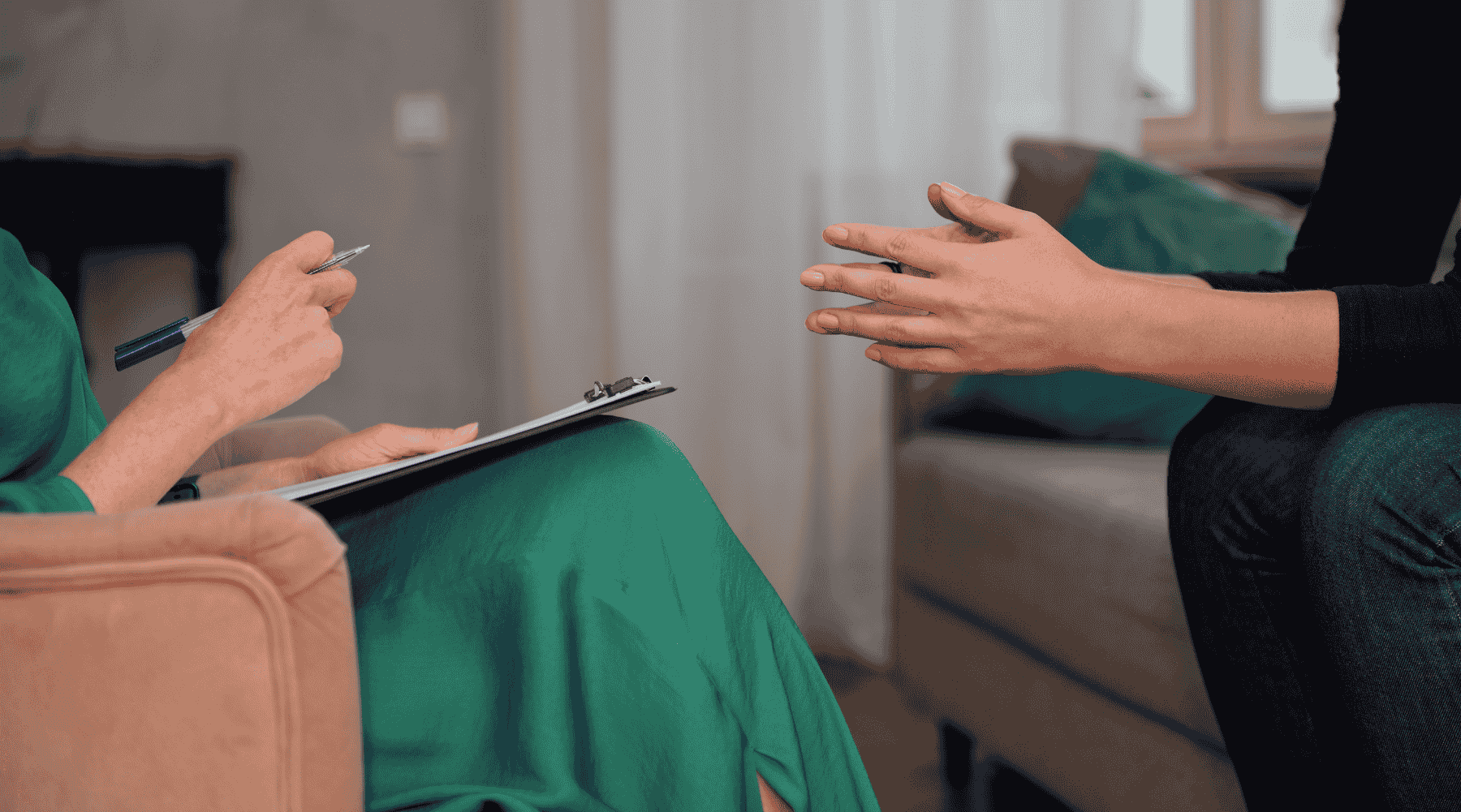By Rick Benson
Over the past 30 years of treating addiction, I’ve seen how normalized gambling has become in our culture. Roughly 85% of American adults have gambled at least once in their lives, and 65% within the last year. Although many people can gamble without becoming addicted, there are many risks involved when it comes to wagering any amount of money.
Whether you’re trying to help a family member who may be struggling with gambling or hoping to prevent a compulsive gambling disorder from taking hold in your own life, recognizing the signs early can make all the difference. In this post, we’ll explore how gambling addiction develops and discuss practical steps for how to recover after gambling loss.
How a Gambling Addiction Develops
Gambling addiction progresses in three main stages: the winning stage, the losing stage, and the chasing/desperation stage.
Gambling addiction starts off with the alluring winning stage, where everything seems perfect, and you are winning more often than you are losing. It's easy to get hooked at this stage, because of the thrill of winning, and the gambler still believes that they are in control. However, this stage is usually short-lived.
Then comes the losing stage. You start to lose significant amounts of money, but since you know what it’s like to win, you continue to gamble, believing that the next win must be just around the corner.
Lastly, the chasing/desperation phase occurs. This is when you have lost so much money that you will do anything to win it back. This may involve lying to friends and family members, borrowing or stealing money in order to gamble, and chasing your losses.
By this stage, it is extremely difficult to quit, since the gambler is in so much financial ruin that they are desperate for money.
Hitting Rock Bottom: Losing All Your Money to Gambling
As a certified counselor and recovering gambler, I've heard countless stories from individuals who have hit rock bottom due to addiction. I have a similar story myself. I’ve lost jobs and I’ve lost all of my money due to gambling. It got so bad that I even had to file for bankruptcy.
When you lose everything to gambling, it’s more than just financial devastation. It’s the emotional and psychological toll that can be truly crushing. At this stage, it’s easy to feel like there’s no way out. Many of my clients have felt the same way – as did I – but have managed to turn their lives around. The first step is understanding that it’s not too late. You can get over gambling loss.
What to Do When Gambling Loss Sets In
When you are gambling and lose a large amount of money, it is only natural to start spiraling into panic and regret. Immediately after a gambling loss, it can feel like your whole world is crashing down. Here are a few things to do after a gambling loss occurs.
1. Acknowledge What You Are Feeling
Trying to numb what you are feeling by gambling will only make things worse. Instead, allow yourself to feel your feelings, but don’t be controlled by your feelings. You may feel powerless, as though you are a failure, that you have messed up one too many times, or that you have lost the will to live. However, these are feelings -they are temporary.

No matter what you are feeling, it is not something that will be alleviated through further gambling. The most important thing to do at this moment is to make sure that you are safe, and not at risk of harming yourself.
If you are concerned about your mental health and what you might do, call an ambulance or check yourself into a hospital right away.
2. Be Gentle With Yourself
Remember, a person’s gambling problem is not a reflection of who they are as a person. Just because they have a gambling problem it doesn’t mean they are reckless or selfish. When you lose a large amount of money, don’t take the loss personally. You did not lose because you are irresponsible or good for nothing - you lost because gambling has a hold on you that you can’t control.
Gambling brings a lot of shame and regret, and can drive a wedge into your closest relationships. It is easy to talk down to yourself and belittle yourself. Negative self-talk will not help the situation. Try to think of how you would react if a friend told you they were struggling with a gambling problem, and treat yourself with the same compassion that you would show them.
3. Open Up to Someone
Whether it be a friend, family member, or a counselor, it’s important that you are able to tell someone the truth about what is going on. Saying it out loud is difficult, but it can also be very freeing.
If you are not ready to talk to someone you know about it, consider calling a helpline, or a gambling treatment center who are familiar with gambling addiction and how to deal with gambling losses.
%20(2).jpg)
4. Take an Extended Break from Gambling
When you have hit the chasing/desperation stage, taking a break from gambling will feel like the last thing you want to do, but it is necessary. Walking away after losing a significant amount of money will give you the space and time to evaluate why it happened, and how to prevent it from happening again.
Gambling is the problem, it cannot also be the solution.
How to Get Over Gambling Loss
When a gambler experiences a significant gambling loss, the first reaction is panic and do anything to try and win back the money they just lost. The stress of debt causes people to chase their losses. However, in doing so, they only plunge themselves deeper and deeper into their addiction and into financial debt.
You may tell yourself that any money you win back you will put into your savings account, and never spend on gambling. The problem with this is that you are not recognizing the fact that you have a gambling addiction which needs to be treated in order to move on from it. Recovery from gambling loss involves accepting the loss, acknowledging the odds, and creating by limiting your access to funds.
Accept that the money is gone. In order to get over a gambling loss, you must come to a place of acceptance, where you realize that that money is gone, and no amount of groveling will get the money back. This can be a difficult thing to come to terms with. It may mean having difficult conversations with your family and picking up another job to help pay off your debt.
Acknowledge that the odds are against you. The sooner you realize that gambling is a game of luck, not a game of skill, the sooner you will be able to stop placing bets. The odds are always in favor of the house, and no matter how good you think you are at gambling, you cannot predict the outcome of the game.
Cut off your gambling fund. Create a buffer between you and your finances so that it makes it more difficult for you to gamble. Close any credit cards or debit cards, or put someone else in charge of your cards.
What to Do if You Feel Like Gambling?
There may be a time that comes when you feel the urge to gamble again. Below are a list of immediate actions you can take to curb those feelings and regain control.
- Talk to Someone: Call a friend, family member, or your sponsor (if you have one) to help quickly distract yourself and get back on the right track.
- Practice Mindfulness: Take a few deep breaths, meditate or journal to center yourself.
- Exercise: Take a walk, go to the gym, or do some type of workout that you enjoy. Sometimes doing something as easy as getting your body moving can help change your energy and get you focused on something besides gambling.
- Use Website Blocking Tools: Install apps that block gambling websites, so that you won’t be tempted to fall back in that cycle.
- Visualize Consequences: Take a moment to remember the negative consequences of gambling, like past financial losses or damaged relationships.
Tips to Quit Gambling Long-Term
The only way to ensure that you never lose this amount of money again, is to quit gambling for good.
Get to the Root of the Addiction
Gambling is addictive because it distracts us from difficult feelings or situations that we are dealing with. It serves as a temporary solution to boredom, anxiety, depression, trauma, loneliness, and more. In order to quit gambling, it’s essential to identify what triggers you to gamble, and to work on getting help for that issue.
Find Things That Bring You Joy
When you stop gambling, you need something that will replace the dopamine rush that gambling brought you. You need to be mentally stimulated. Find something that you are passionate about, that challenges you.
Get Treatment for the Gambling Problem
Along with treating the underlying issues that trigger the addiction, you also must treat the gambling problem itself.
If you are experiencing extreme loss from gambling, you are not alone. There are people and resources who are here to help you. We have seen many clients who were deep in gambling addiction come out the other side after intensive treatment. View our testimonials. Take it one day at a time. Recovery is a journey, and you can’t expect to be healed overnight.
If the gambler has reached the desperation stage, then attending a residential gambling treatment center will be the most effective way of successfully treating their gambling disorder.
If you have concerns about yourself or a loved one’s gambling, reach out to our gambling counselors, and we can help you navigate this difficult situation.




